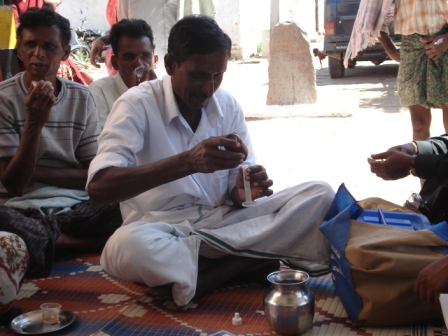
Project Summary
The project improved water quality by tackling the fluoride problem in a village in Andhra Pradesh. Existing concerns within the government systems of Chitoor district about fluoride contamination were validated through water quality studies. Several decentralised fluoride mitigation measures were tested during the pilot phase. This helped in the identification of several cost-effective solutions for improving water quality and led to efforts to introduce these measures in the district.
Outputs
- Awareness building workshops and trainings conducted for the community and local government to explain the ill effects of high Fluoride concentration in drinking water.
- Villagers trained to use field test kits, thus empowering them to independently test the quality of water.
- A field-test based report was submitted to the district administration. Based on this the Collector ordered testing of water samples for Fluoride in about 60 villages. This confirmed that the water was found to contain Fluoride above permissible levels.
- The MGNREGS programme was leveraged for afforestation efforts to achieve better vegetation and less soil erosion.
- Various methods to provide potable, Fluoride free water implemented:
-
- Rooftop rainwater harvesting systems set up to provide safe water to around 15 households.
- Activated alumina filters installed to provide safe water to around 30 households.
- Jal Nirmal Defluorider Sachet, a new product that removes Fluoride and bacteria, was tested for effectiveness and suitability on a pilot basis in around 5 households.
- Village tank (Cheruvu) renovated (desilting, bund strengthening, etc.) to gain better surface water storage.
*Grant amount & beneficiary figures are as per actuals for completed projects.







 Outreach
Outreach